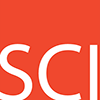Following up on recommendations from OSI2016, this team will dig deeper into the question of developing and recommending new tools to repair or replace the journal impact factor (and/or how it is used), and propose actions the OSI community can take between now and the next meeting. What’s needed? What change is realistic and how will we get there from here?
Following up on the research ideas proposed by OSI2016 delegates, this workgroup will create broad action plans for a variety of studies, beginning with the global flip, moving next to embargos, and also including publisher services disaggregation and an assessment of open impacts if possible—how fast, how even, systemic pressures and so on (referencing the OSI2016 workgroup papers on these various topics). Detailed study protocols aren’t expected, but rather an outline of what to prioritize, and how to conduct this work without necessarily relying on large grants from neutral parties. With regard to the global flip, this research is needed to help answer the question of whether a flip using APC’s is the right model to pursue (given concerns, for instance, about how this might affect access in the global south).
What standards, norms, best practices, exit strategies, and incentive systems does the world of scholarly communications need? What is the future ideal? What will it take (including studies or pilots) to develop a better understanding of how the scholarly communication system works now? This workgroup will also necessarily touch on norms and definitions, so will include discussions as warranted about open and impact spectrums as covered in OSI2016.
Following up on a proposal from OSI2016, this workgroup will identify and/or design new funding models for open, such as a venture fund that can allow more support for joint efforts, or propose ways to improve existing funding by improving the flexibility of library budgets (e.g., by examining the efficiency of “big deals”).
Building on the findings of OSI2016’s preservation, repositories and mandates workgroup, this workgroup will propose a way forward for repository and infrastructure solutions—detailing what’s needed before action can be taken, what this action should look like, what actors should be involved, and so on.
Building on the peer review workgroup’s proposals from OSI2016, this workgroup will develop a broader and clearer description of peer review that takes into account the different needs for different stages of review, as well as discuss possibly emerging issues such as the need to promote uniform interpretation and enforcement of peer review definitions, and will develop proposals for moving forward.
Following a common thread from throughout OSI2016, this workgroup will develop partnership proposals for this community to work together to improve the culture of communication inside academia, particularly inside research. As part of this effort, it may be important to clarify messaging with regard to the benefits and impacts of open—and/or determine what resources and information are needed before this messaging work can be done effectively (including proving the benefits of open to a skeptical research community, addressing the many concerns involved, explaining the pros and cons, and making the case for why this is worth the trouble).
Following a common thread that ran throughout OSI2016, this workgroup will discuss promotion and tenure reform, developing a widely-accepted and inclusive model (or a path to a model) that stakeholder partners can use to help reduce the influence of journal publishing on promotion and tenure decisions and help make these decisions broader, more transparent, and less reliant on publishing and impact factor measures. Note that this group is not trying to remove publishing from tenure decisions—just break the feedback loop that is fueling undesirable outcomes in scholarly publishing, academia, and grant funding.
A new issue for OSI2017, this workgroup will focus on the unique challenges faced by the global south, the global diversity of scholarly communication, and the different issues, challenges and opportunities in both underserved regions of the world and underserved segments (like small colleges and small research firms). This group will also follow up on the information underload issue explored in OSI2016 (specific to research).
What are the impacts of Sci-Hub and other rogue solutions on open access and what is the future of this approach, which may be gaining new mainstream support (noting for instance Wellcome’s recent funding of ResearchGate). What new resources should the scholarly community develop (and how) that would be useful and legal additions to our progress toward open (a new blacklist for instance, or new repositories)? This group will also integrate (to the extent possible) ideas raised by the information overload workgroup from OSI2016.
As a new issue for OSI2017, this workgroup will look at patent literature, research reports, databases and other published information. OSI by design has a university-centric and journal-centric bias to the perspectives being considered. Patent literature, research reports, and databases are also important sources of research information—more so than journals in some disciplines (although these still reference journal articles). As with journal articles, this information isn’t always free or easy to find and is suffering from some of the same usability issues as journal articles.
What are the unique needs and concerns of HSS scholars in this conversation? What are the unique needs and concerns of scientists (particularly in health/medicine)? This workgroup will recommend approaches and solutions to scholarly communications reform that work for both groups—a challenging assignment but important since common-ground conversations are what the research community is missing.
At large team 16 (observers)
